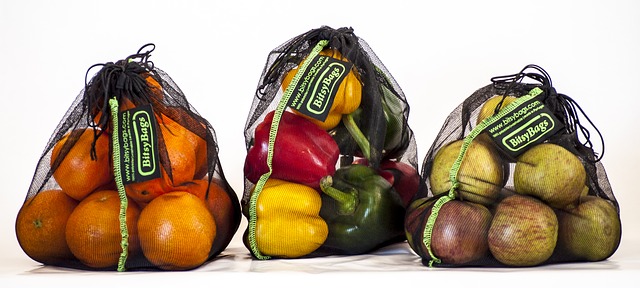
How & Why to Stay Hopeful and Helpful during the Coronavirus Crisis
by Mimi Guarneri, M.D., F.A.C.C.
Once you get your family’s plan for the next few weeks established, I would like to encourage you to find ways to be both hopeful and helpful as possible going forward.
Scores of studies have suggested that both being more hopeful and engaging in one’s community contribute to overall health and can even boost immunity. Let’s tackle hope first.
Hope’s Impact on Health
Challenging times mean many of us are glued to our televisions to stay up with the latest updates. We’ve become familiar with newscasters’ severe expressions and grave tones of voice. While we all want to get the medical and government guidance, overdosing on negative news can put our bodies into a stressed state.
This is a serious situation, but remember that 80% of those who contract coronavirus will have only mild symptoms. Balancing your news viewing with phone calls to friends, listening to upbeat music and watching funny or uplifting movies creates the hopeful mood that supports health and energizes rather than depresses us.
Here at Pacific Pearl, we’ve seen amazing health outcomes with patients who cultivate hope and a positive outlook in themselves, their families and their communities.
The whole placebo effect–where people get better because they believe they will get better–is based on hope. I learned early in my career to hand patients a prescription and say decisively, “Here, this will help you” rather than, “Why don’t we try this medication?” When I put my energy into believing a prescription will work, it sets the patient’s own intent to heal into motion. My patients’ outcomes improved, and similar outcomes in medical clinics all over the world have been validated by research.
A fascinating 2007 study explored the effect of positive affirmation through expressive writing by women who had survived breast cancer. Researchers found that the women whose writing was more positive and affirmative experienced fewer negative symptoms and a better health outcome than those who expressed consistently negative thoughts.
Finally, a 2016 meta-analysis of 54 studies published in the Journals of Pediatric Nursing compared health outcomes to levels of hope in adolescents. Researchers concluded that higher levels of hope correlated with better:
- health outcomes
- coping and adjustment
- quality of life
- sense of purpose in life
- self-esteem
- resilience
More, those with high levels of hope, “find multiple routes to goals, view setbacks as challenges and better manage psychological symptoms.”
When you have a positive attitude, you’ll not only help yourself, but your neighbors and your greater community. If ever there was a time to minimize negativity it’s now. Everyone needs the health boost that hope provides.
Pitch In to Power Up: Staying Helpful at a Distance
Connection to community has documented health-protective effects. Swami Satchidananda, a spiritual teacher and the founder of Integral Yoga, said, “The I in illness is I isolation. The W-E in wellness is we.” In a study published in the Journal of the American Medical Association, researchers actually placed cold viruses in the noses of 276 healthy volunteers. Those with the lowest number of social connections were 4 times more likely to develop the cold.
One action that helps is to volunteer and serve others even during this time. The Mayo Clinic reports that volunteers have:
- lower rates of depression
- better physical health than non-volunteers
- lower stress levels
Further, Longitudinal Studies of Aging from the CDC found that volunteers have lower mortality rates than those who don’t volunteer, even when age, gender and physical health are factored in.
Some researchers suspect that humans are just hard-wired to give to those in their communities. Here, we list some practical ways to contribute now.
Contribute to Local Community Foundations and Churches
While coronavirus will isolate and inconvenience many of us, restaurant workers and other minimum wage workers may have their daily wages completely curtailed.
Economists estimate that 50 to 80 percent of Americans live paycheck to paycheck. Not getting paid can mean not feeding their children or themselves. Housing, too, may be threatened. While San Diego City Council President Georgette Gomez and others are proposing a moratorium on evictions, we do not know whether this ruling will pass at this time.
These people will need money immediately. Here in Southern California, the San Diego Foundation has set up the San Diego Covid-19 Community Response Fund. Initially funded by a $1,000,000 grant from SDGE and $300,000 from the foundation itself, the fund is soliciting donations. It will, “make emergency grants to nonprofit organizations that have deep roots and strong experience supporting impacted communities, particularly those that are disproportionately affected by this global pandemic and its economic consequences.” Grants will focus on food security, rental and utility assistance and income replacement.
Please consider donating. Also, stay in touch with the social media feeds and emails from your church. Many are setting up funds and services to help those in your immediate area.
Call, Text or Drop Off Supplies for Older Neighbors and Those Quarantined
The CDC is now recommending that adults over the age of 60, “stay home as much as possible to further reduce your risk of being exposed.” More, you may see on Facebook and Instagram that some of your neighbors are self-quarantining due to recent travel or exposure to someone who tested positive.
That means these Americans are dependent on others to bring in new supplies. Reach out by text, phone or even in person with a window or door between you and the occupant. If you’re concerned that your offer to help may be construed as intrusive or condescending, try a more casual, “I’m running to the store. Do you need anything today?” For both older neighbors and those quarantined, it’s best to “ding-dong-dash,” leaving the goods at their door rather than interacting with them.
Consider Donating Blood
In keeping with guidelines to limit public gatherings to 50–and now 10–or less, the American Red Cross has recently canceled 125 blood drives nationwide. They plan on canceling more. Keep your eyes and ears open for safe ways that you can donate blood if you remain uninfected.
Donate to Food Banks
The closure of the schools means many children will not have access to healthy meals.
Keep eyes and ears open about how you can contribute your excess food to local food banks. Feeding America has a tool that lets you search your zip code or state to find the food banks in your area. In Southern California, you can reach out to Feeding America San Diego and the Jacobs and Cushman Center Food Bank, two established, trusted San Diego organizations that rescue food that would otherwise go to waste and distribute it throughout the county.
This Is the Time to Pull Together While Staying Apart
Most likely, in the past few days you’ve found yourself in a very long grocery store line. I was there, too.
I couldn’t help but notice, however, that people were making eye contact and talking more than usual. Some were even laughing. It reminded me of the holiday shopping experience when the stores are packed, but people have that, “we’re all in this ridiculous situation together. May as well be friendly” attitude.
Being hopeful and helpful in a crisis will do you much more good than being closed off and nasty. It’s at this time that we realize how much more important our relationships and communities are to us than our status and possessions. Let’s use this wake up call to change our lives, our health and our communities for the better.
Read more tips about how to reinforce body, mind and health during a viral threat in our recent blog post.

You must be logged in to post a comment.